Dorset nurse invited to Buckingham Palace by His Majesty the King
A nurse working at University Hospitals Dorset (UHD) attended a special reception hosted by The King to celebrate the role of international nurses and midwifes in the UK.
Deepa Pappu, equality, diversity and inclusion lead at UHD, received the invitation to Buckingham Palace after NHS England recognised her contributions to nursing in her role as professional nurse advocate.
Deepa said: “I am deeply moved by His Majesty’s thoughtful gesture of spending time with international nurses and midwives on his birthday. It was one of the most memorable days of my career. My family back home and friends around the world were super excited. The kind and happy messages from my colleagues made me feel truly loved. To be invited to the palace and shake hands with The King was beyond my dreams. It was pure joy.”
Deepa joined the NHS as an internationally educated nurse from Kerala, South India, in 2004. Throughout her career she has worked hard to welcome other internationally educated nurses as they arrive in Dorset. During the Covid-19 pandemic, Deepa supported new arrivals who were isolated from their home support systems.
In her new role as equality, diversity and inclusion lead, Deepa continues to ensure colleagues across the trust feel at home at UHD.
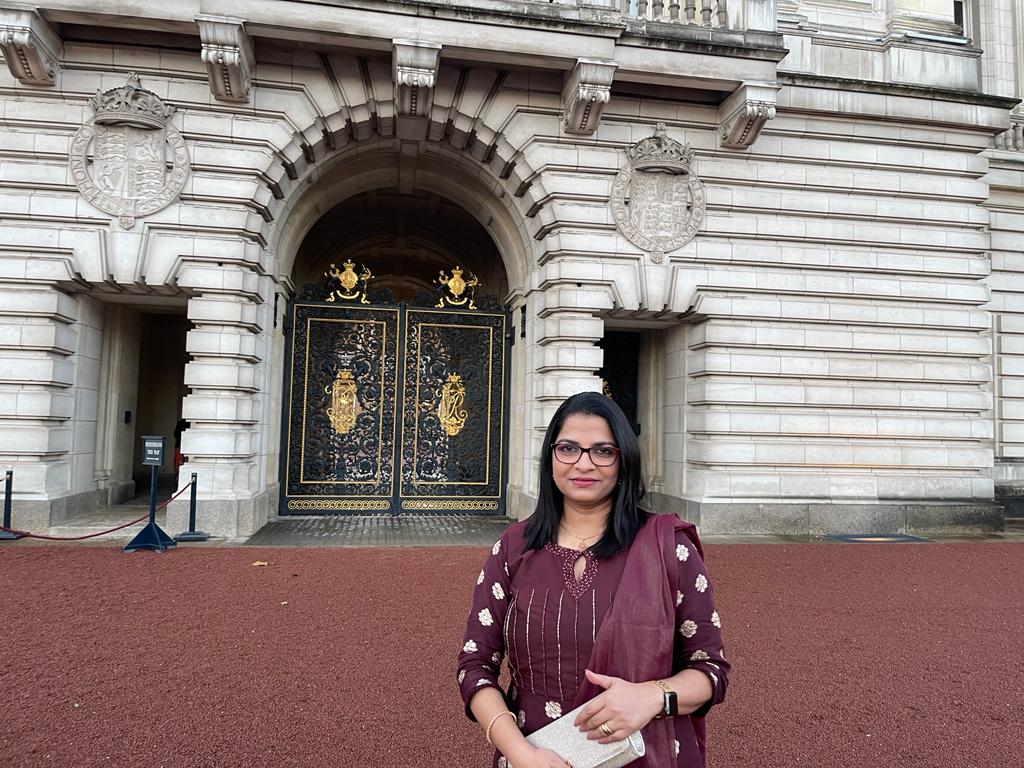
Christchurch Day Hospital awarded for outstanding service
The team at Christchurch Day Hospital have been accredited by Bournemouth University for the exceptional care they provide to patients.
The hospital was awarded Practice Development Unit accreditation which looks at how services maintain and develop excellence in practice, leadership management, meaningful and effective engagement of users and carers, support for the care team and how they evaluate practice development.
The PDU Accreditation plaque was presented to the Day Hospital by Michele Board, BU associate professor and deputy head of department for nursing science.
She said: “It’s a great privilege to be back at Christchurch following their successful reaccreditation event in December. They continue to develop their practice for the benefit of patients. The team cares and supports each other immensely, and this cascades to the patients and families that visit.”
Laura Martin, clinical lead at the Day Hospital, said: “This is a wonderful boost for our team and allows us to continue the standard of care we have worked hard to embed into our day to day. We know it makes ae difference to our patients to know they are receiving the very best patient care.”
Christchurch Day Hospital is part of University Hospitals Dorset and provides specialist assessment, treatment, and rehabilitation for older people.
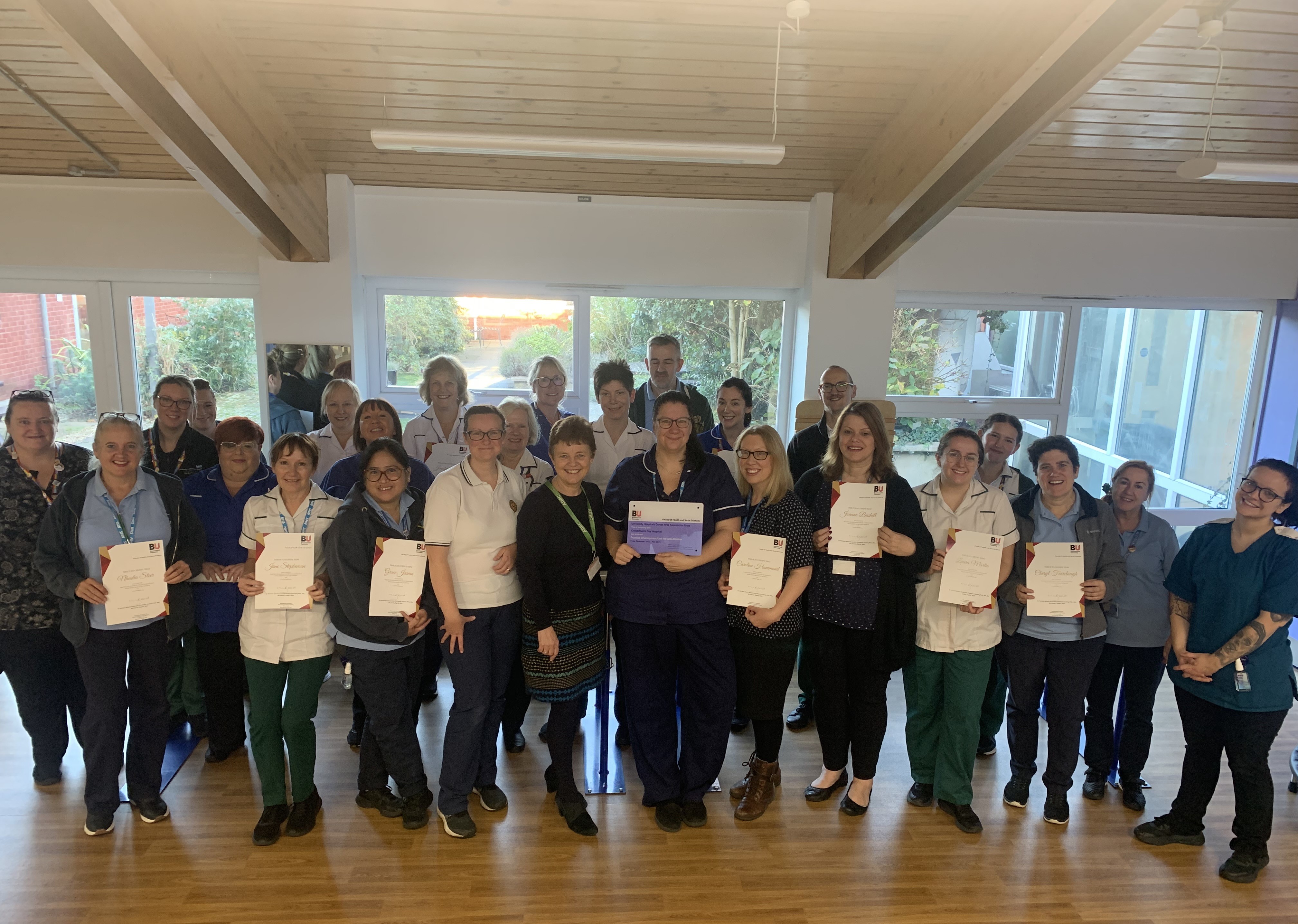
Enhanced care coming for stroke patients in Dorset
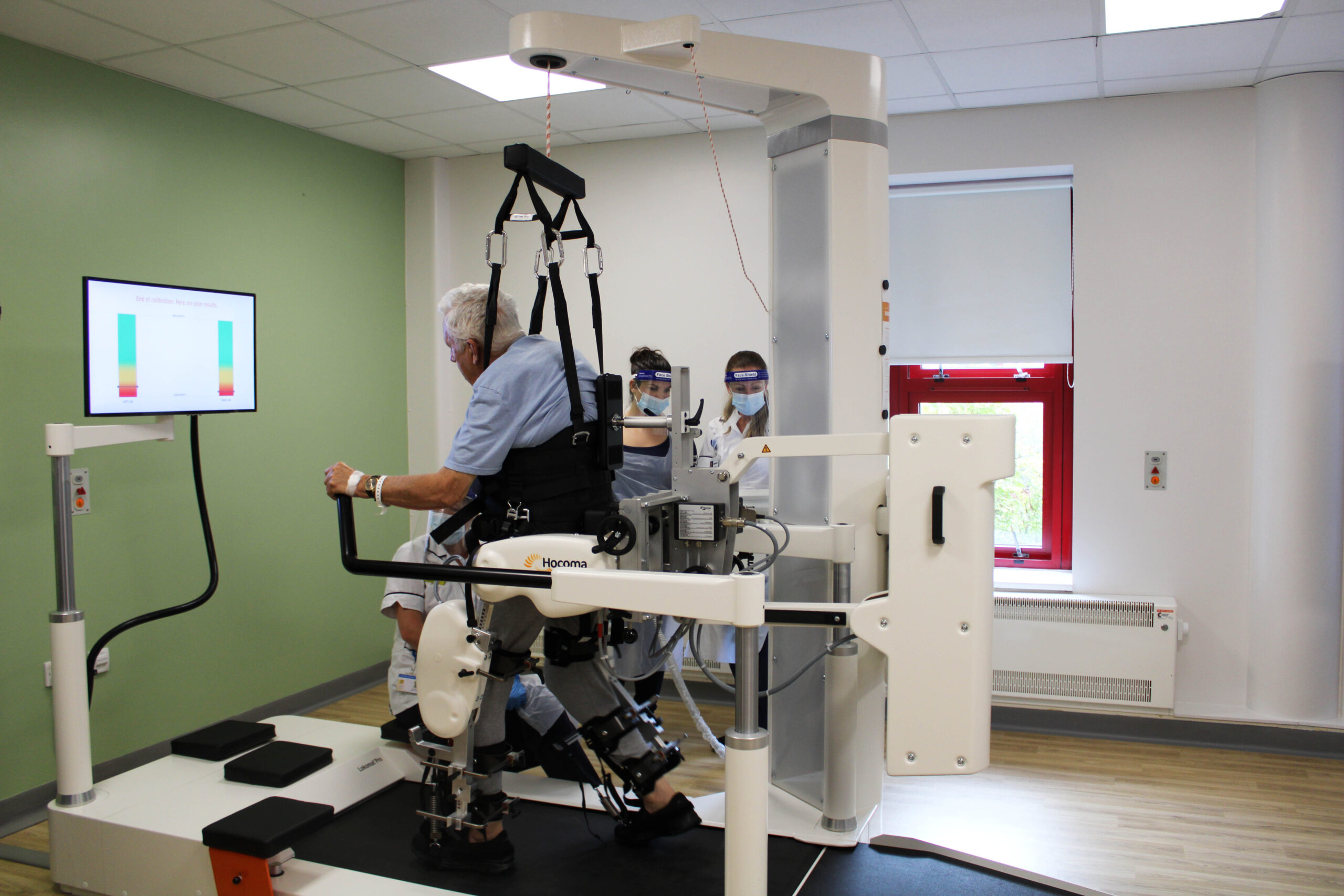 Specialist support services are being introduced in Dorset to help people recover from the debilitating effects of a stroke.
Specialist support services are being introduced in Dorset to help people recover from the debilitating effects of a stroke.
Ahead of World Stroke Day on Sunday (29 October), local NHS trusts have outlined the extra resources being made available to give people the best chance of making a full recovery.
New-look stroke units are on the way in the east and west of the county, while enhanced community rehabilitation services will ensure all local stroke patients have access to expert treatment tailored to their needs.
More than 100,000 people suffer a stroke in the UK every year. Strokes can leave people with partial paralysis, impaired speech, balance and mobility problems, and other life-changing impacts.
Acute hospital services are critical in the first 72 hours to maximise the patient’s chances of recovery but equally important is the rehabilitation follows.
In west Dorset, next year will see the introduction of a "hyper acute stroke service" at Dorset County Hospital, providing 24/7 acute stroke care for the first time.
Patients will be monitored by a team of stroke specialists on the new unit for up to the first 72 hours (or longer if required) until they are stable enough to be transferred to the hospital’s main stroke unit. More information is available at www.dchft.nhs.uk/service/stroke-unit/
And while stroke patients in north and west Dorset have previously been limited to two weeks of rehab support following discharge from hospital, a new-look community service means that people will receive specialist care to help meet their needs and achieve their goals as quickly as possible.
This care – provided by Dorset HealthCare – is available to people who have just had a stroke or those still struggling with the effects of a stroke in the past. And any GP, health professional or social care worker can refer people to the service.
Luisa Hardy, Dorset HealthCare’s adult community stroke and neuro services manager, said:
“This approach is in line with new national stroke guidelines, and is a huge step forward for people in north and west Dorset.
“People are not passed off between teams, but have their specific needs met by one team of occupational therapists, physios, speech therapists, nurses, psychologists and others who are specially trained in stroke care.
“While we have a dedicate stroke rehab unit at the Yeatman Hospital in Sherborne, our staff also support people in their own homes.”
Watch a short video clip about the new-look community service: https://youtu.be/74zDAvzBlwQ
Meanwhile, in the east of the county University Hospitals Dorset is expanding the stroke recovery unit at its Royal Bournemouth site.
This will increase the number of beds to 43, and give patients access to improved facilities and cutting-edge technology such as the Walkerbot – pioneering equipment which helps people relearn how to walk. The device is the only one of its kind in an NHS hospital in England, and is now in use at the Royal Bournemouth Hospital Stroke Unit – helping patients to take the thousands of steps needed a day to allow their brains to rewire during recovery. The aptly named Walkerbot appeal began in 2020 and thanks to generous donations from incredible individuals, local businesses and community supporters, the robotic device was funded by the charity in just 20 months.
Work towards preventing strokes also remains a priority for local NHS services. Dr Ben Oxley, GP Partner at Poole’s Adam Practice, said:
“I would encourage everyone to ensure they limit their chances of suffering a stroke by staying active and having regular blood pressure checks.
“High blood pressure is a major cause of strokes in adults, so it’s important get it treated promptly.”
For more advice on reducing your chances of suffering a stroke, visit https://nhsdorset.nhs.uk/adopt-healthy-habits-to-reduce-your-risk-of-stroke
Reflecting on a massive week for pathology
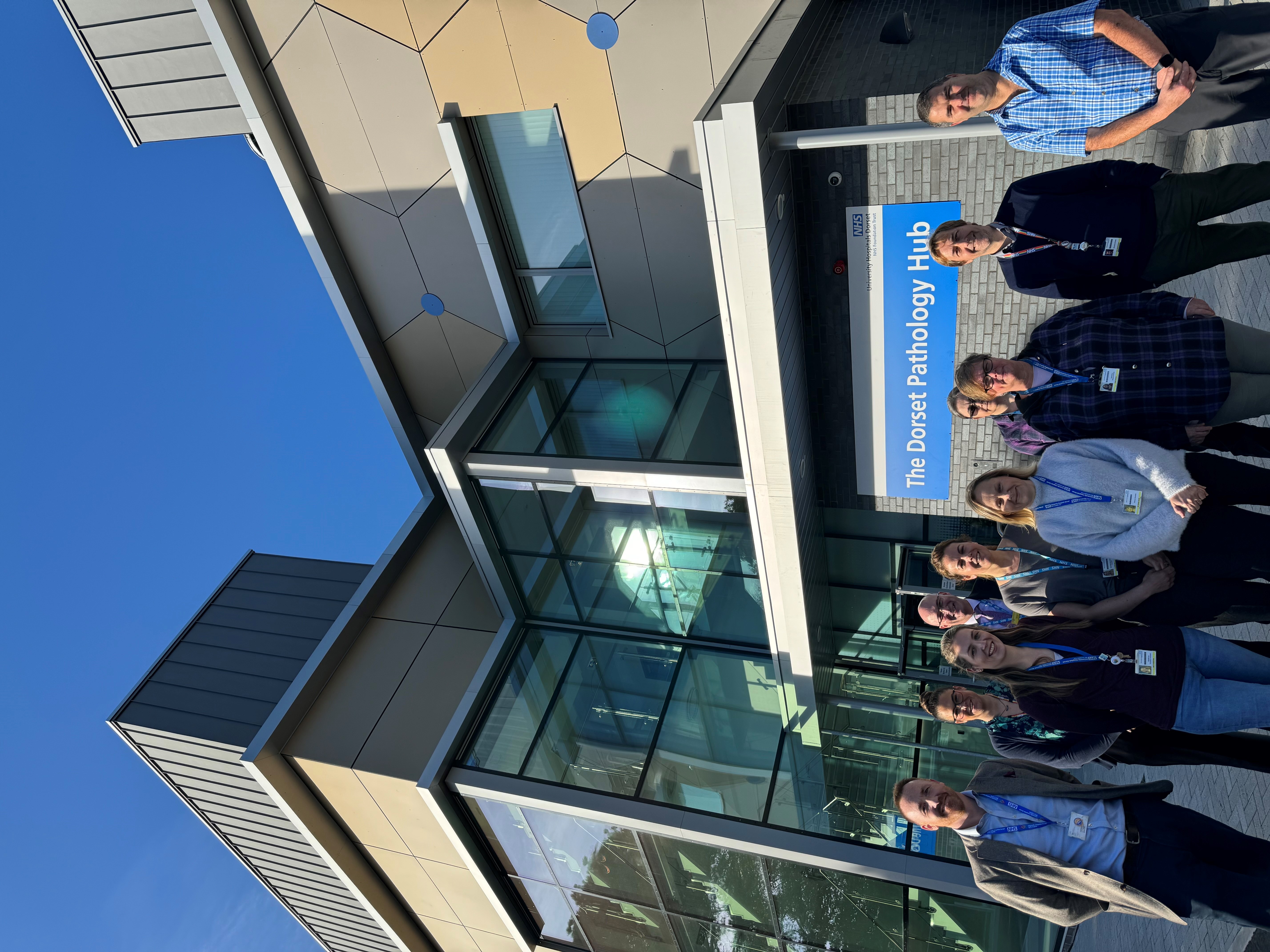 After many years in planning, the Dorset Pathology Hub opened its doors this week (w/c 13 November) . The molecular pathology team were the first to move across and are already reporting patient results.
After many years in planning, the Dorset Pathology Hub opened its doors this week (w/c 13 November) . The molecular pathology team were the first to move across and are already reporting patient results.
The facility is one of the most advanced pathology hubs in the UK, supporting hospitals across the region to improve diagnostics for patients, meeting the growing demand for specialist treatment and care.
As part of the fantastic week, UHD also learnt that the Institute of Biomedical Science (IBMS), has accredited a new degree at Bournemouth University in Biomedical Science.
Head of pathology, Paul Massey said: “This week has not just been about buildings but building futures. Congratulations to everyone involved and watch this space for more news as other teams move into their new home.’
The new state-of-the-art laboratory, located on the Wessex Fields site next to the Royal Bournemouth hospital, is part of the One Dorset Pathology network - a collaborative partnership between Dorset County Hospital and University Hospitals Dorset. The project has been backed by the Dorset Local Enterprise Partnership (LEP), which supported the project with a £2.7 million Local Growth Fund investment in the histopathology diagnostic hub as part of its initiatives to support Covid-19 recovery and accelerate healthcare resilience in the county.
You can watch a behind the scenes tour and find out more about the Hub here.Overnight Hospice at Home service earns national recognition
A special collaboration between a hospital’s end of life care service and a night nursing team has been recognised for its work to support patients and their loved ones at the ‘scariest time to be living with an advanced illness.
The ‘Hospice at Home’ pathway was established from Christchurch Hospital’s Macmillan Unit, in collaboration with the Community Night Nursing Team in Dorset, following challenges to meet high demand.
Louise Pennington, lead nurse for palliative care, said: “I know many of us, me included, have experienced what 3am can feel like when you are caring for someone who is dying. I am really proud of our teams and the impact that we are having across the system in east Dorset for patients with palliative and end of life care.”
The service provides dedicated, tailored support to patients under specialist palliative care. Patients are triaged by a 24/7 helpline, with the service aiming to increase both the capacity and quality of care for patients in their homes overnight.
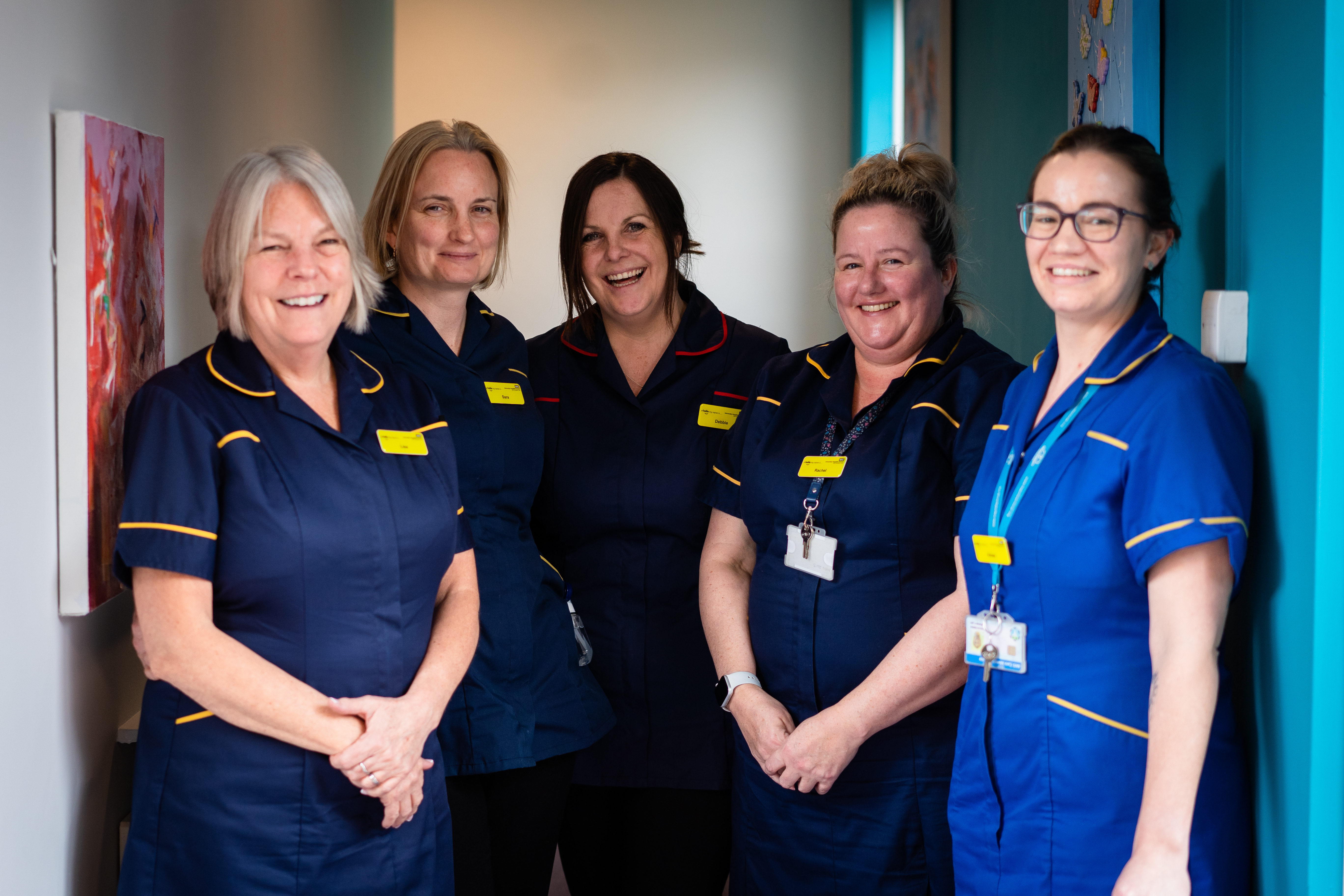
Benefits are far-reaching, providing bespoke care to patients with complex palliative care needs, shorter wait times, and a reduced pressure on ambulance service and emergency admissions.
The collaboration has since been showcased as one of six successful case studies in a report published by Sue Ryder, titled ‘Best practice in end-of-life-care’, with the initiative commended for “implementing services in response to challenges, and meeting local population health needs.”
Louise added: “The partnership has empowered the team. It’s really important and an interest of mine to focus on the ‘out of hours’ period, which is 75% of the week, as this is the scariest time for a person living with advanced illness, and for their families. Staff feel enabled to be caring in the way that they should be caring again.”









